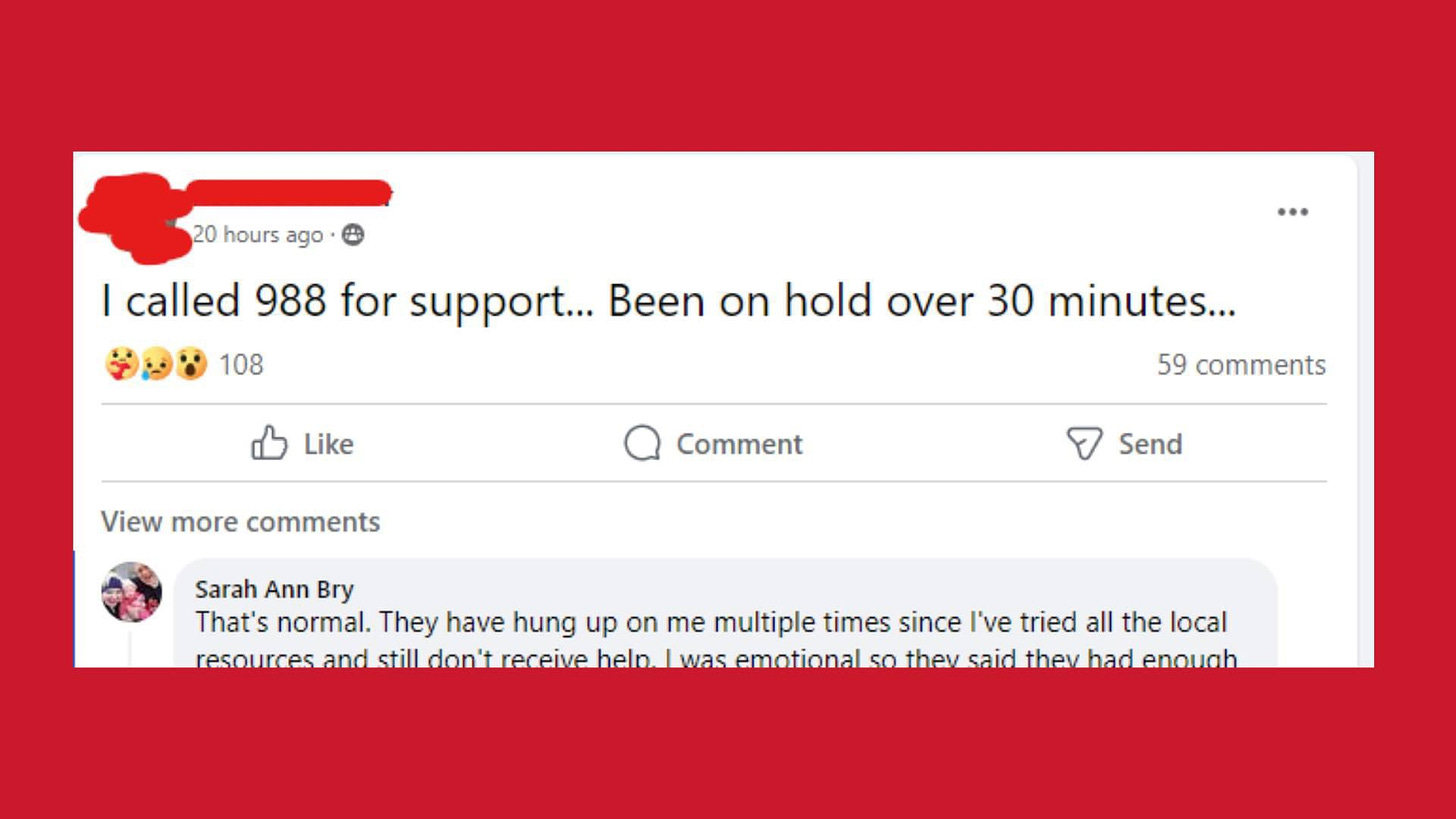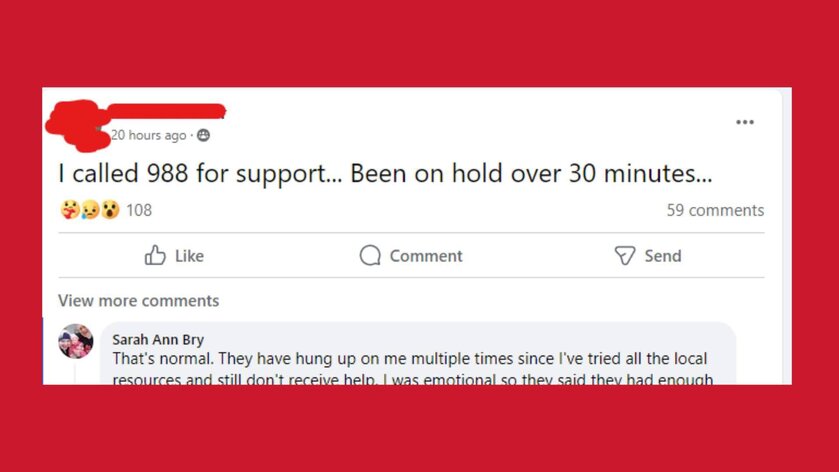WASHINGTON D.C. - Dozens of people have reached out to me saying they have been put on hold for more than a half hour or even hung up by operators of the 988 Suicide and Crisis Lifeline.
The following is just one of the posts on a mental health Facebook support group:

I have heard stories from numerous people telling me they have been put on hold for ten to thirty minutes or have even been hung up on.
Please support my independent journalism if you haven’t done so already. I left my job in the mainstream media to fight the narratives independently. Could you help me to continue keeping it real?
The U.S. Substance Abuse and Mental Health Services Administration (SAMHSA) and Vibrant Emotional Health launched the Lifeline on January 1, 2005. Vibrant Emotional Health, the administrator of the grant, works with its partners, the National Association of State Mental Health Program Directors (NASMHPD), National Council for Behavioral Health, and others, to manage the project, along with Living Works, Inc., an internationally respected organization specializing in suicide intervention skills training.
The 988 Suicide & Crisis Lifeline has been independently evaluated since its inception by an investigation team from Columbia University’s Research Foundation for Mental Hygiene. The Lifeline receives ongoing consultation and guidance from national and international researchers and experts focused on suicide prevention and crisis response.
A spokesperson from Vibrant reached out to me regarding these allegations and said they would issue a statement but have not yet done so.
Everyone who answers your call has been trained, but not everyone is a professional
Some counselors who answer the phone are paid; others do so on a volunteer basis.
Anyone who answers your 988 call has been trained by Vibrant Emotional Health, but not everyone is a licensed mental health professional.
“These are highly trained crisis counselors,” Naturale said. “They get extensive training in order for their crisis center to be part of the Lifeline.”
The Lifeline is made up of a network of over 200 independently owned and operated local centers. Extensive training involves a minimum of 40 hours of coursework that includes learning about the evidence-based practices that are known to prevent suicide, she said.
You’re only as local as your area code
Let’s say you moved to Brooklyn 20 years ago but never got around to changing your mobile number (it happens). If you call 988, you’ll be sent to a local call center that’s in the area code where you used to live, explained Anthony Wood, the interim CEO, and COO of the American Association of Suicidology, a Washington, DC, group that helps certify crisis call centers.
“The hotline can’t geotarget yet,” he said. This may be good for privacy reasons because operators can’t find you unless you tell them where you are, but it may make it harder for you to access local resources.
“The Omaha call center wants to help, but they don’t know what services are available in Brooklyn, so it’s not the most efficient way to do it,” Wood said.
The lines may be understaffed
COVID-19 spurred the Great Resignation with record numbers of employees quitting their jobs. Many companies, including crisis centers, are still struggling to find — and keep — good help.
Making matters worse, local crisis centers need even more counselors to handle the consistently high volume of calls to 988, Wood said.
“Funding for crisis workers has improved dramatically, but more staff will need to be recruited and trained, and that all costs money,” he said. The question is where funding should come from.
The Biden administration has invested more than $400 million in crisis centers and other mental health services to support the 988 system, but now states must figure out how to pay for additional staffing and resources.
“Some moved fast and added taxes to telecommunications bills, and other states are still struggling,” he said. Unless and until these centers are staffed up, demand could easily outpace supply.
Some information sourced from Yahoo news.
Has anyone had this experience?




















